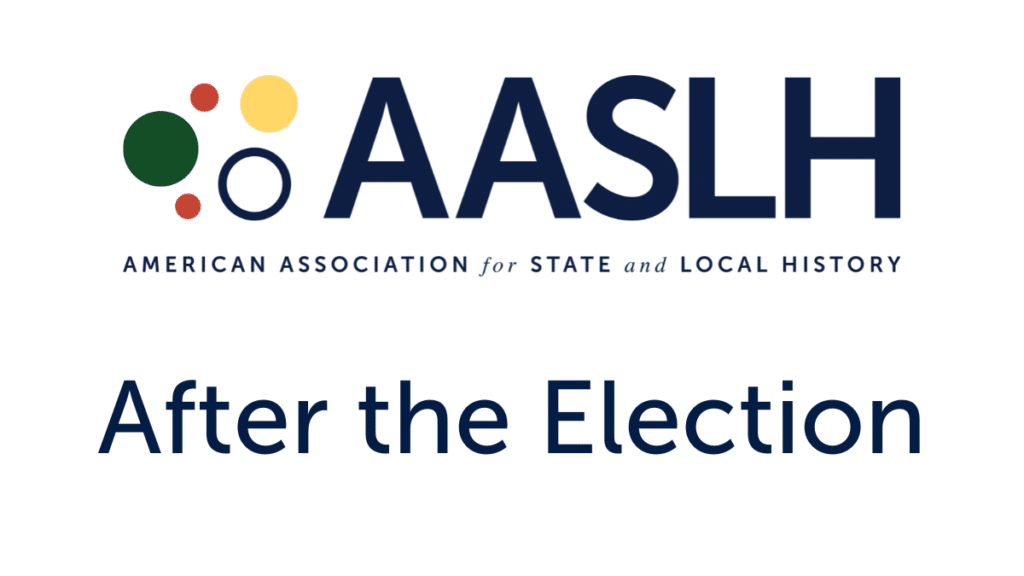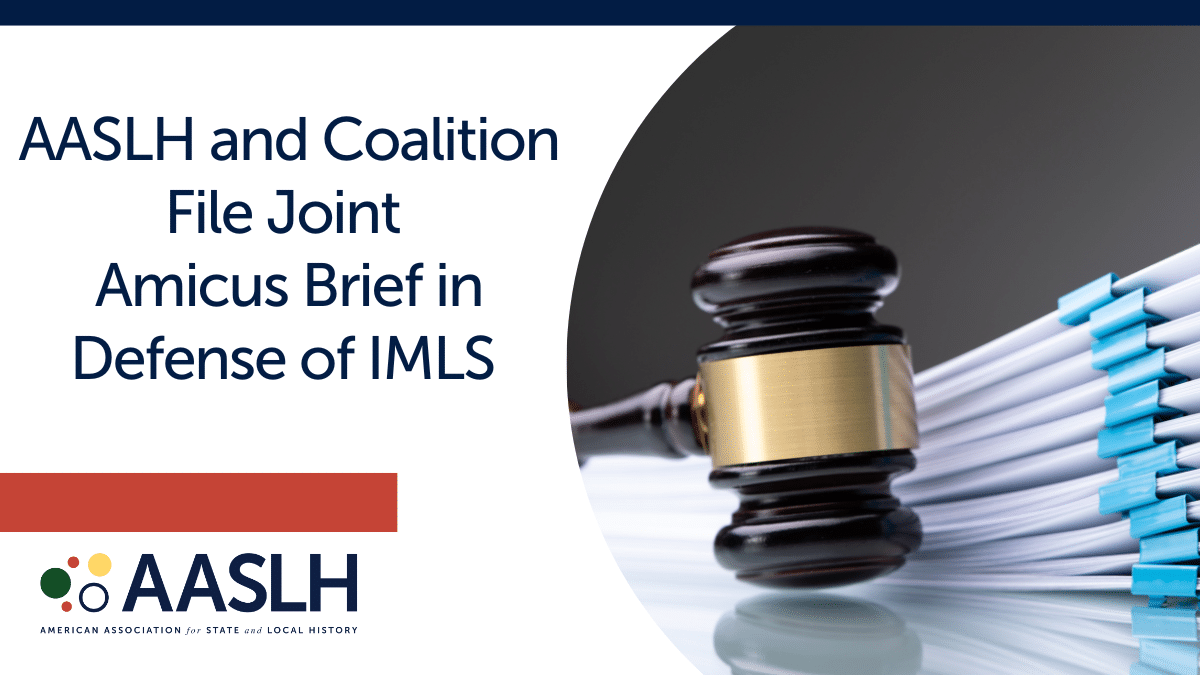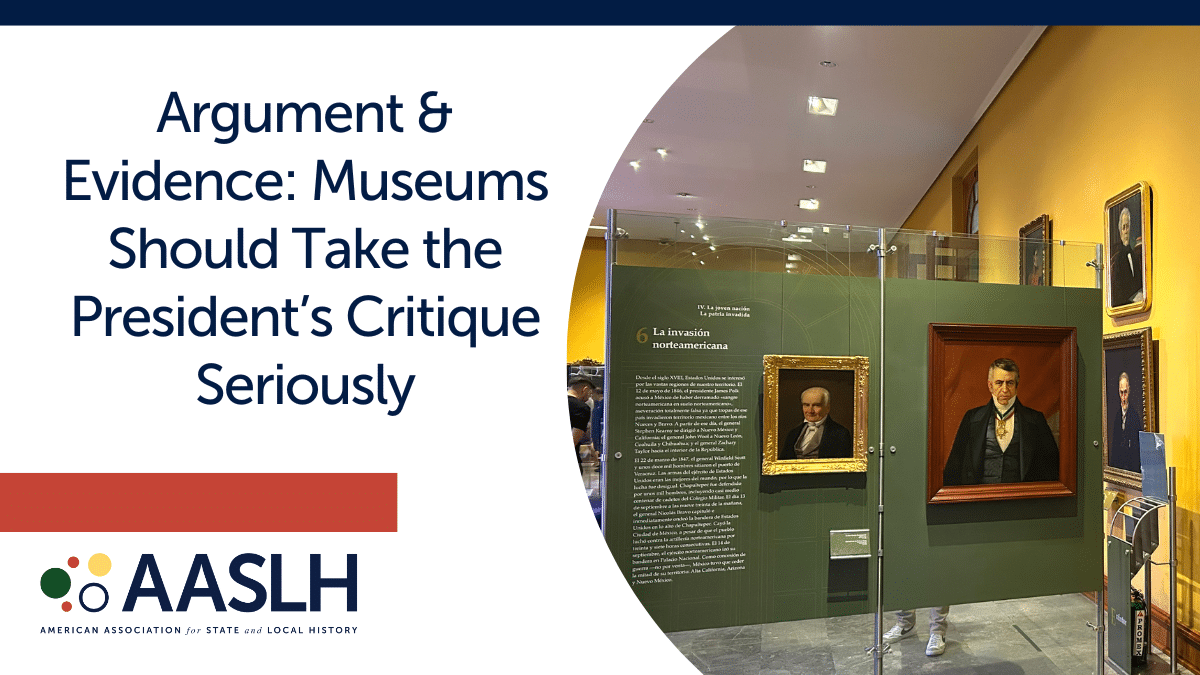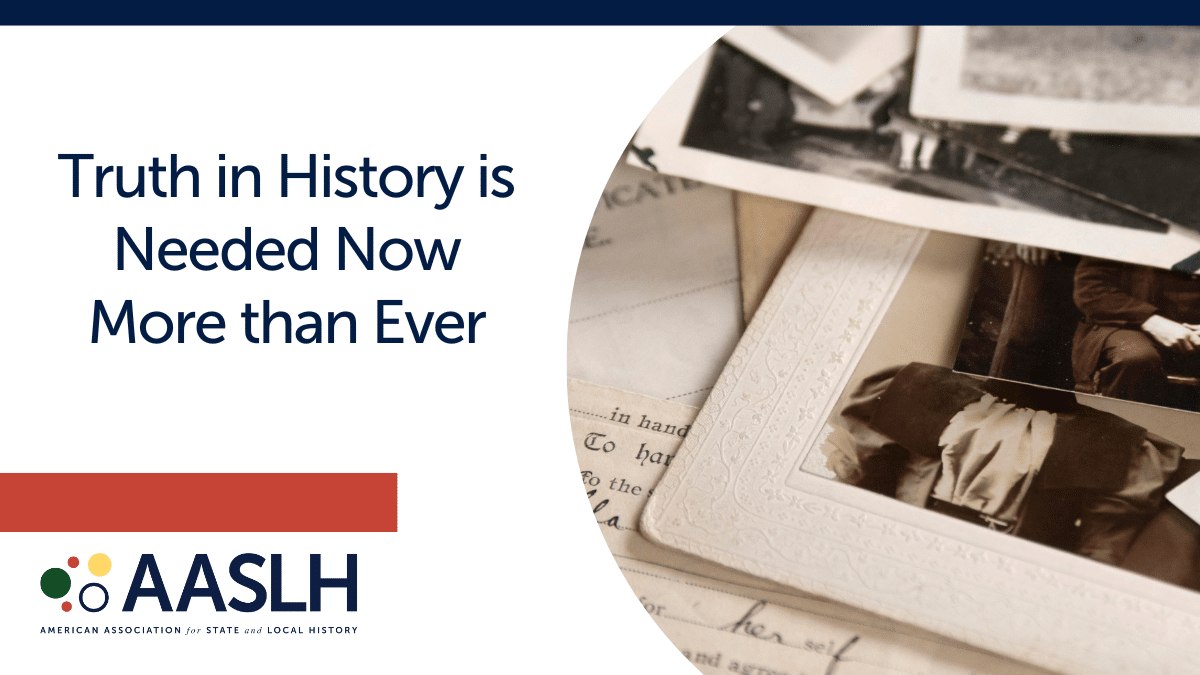
As Americans vote to shape the future of our country, it’s vital to recognize the essential role history organizations play in strengthening democracy. At the local, state, and national levels, these institutions help people appreciate the long arc of American history while also exploring what makes their own communities unique. History organizations provide the public with context to better understand moments of conflict and compromise, stories of progress and setbacks, and the many connections between past and present.
At AASLH, we are committed to providing leadership, resources, and advocacy to help the history community thrive as it works to present a full, accurate history—one in which everyone can see themselves. We believe that a complete history rooted in evidence and informed by experience helps us make progress toward becoming a more just society. We will continue to help the history community preserve and interpret the past, encouraging the public to use this knowledge to actively engage with contemporary issues. History organizations have a responsibility to foster these meaningful dialogues—grounded in critical thinking and empathy—within their communities.
In these challenging times, it can be difficult to have productive conversations about the past and its significance for the present. Our most recent History News magazine issue, devoted to the “Doing History in Polarized Times” virtual summit AASLH presented earlier this year, and the accompanying Technical Leaflet, “Trust and Strategy in Communication” (free here), both provide practical guidance for navigating these difficult conversations about past and present.
All history practitioners must continue to identify opportunities to build bridges across lines of difference and create a more widely shared understanding of our history. Research shows that the vast majority of Americans support telling our whole history—one that both highlights our strengths and critically examines our failures. These same studies show that Americans value the inclusion of the experiences of historically marginalized groups as part of our national narrative.
As we approach the nation’s 250th anniversary in 2026, our work will take on even greater significance. AASLH remains dedicated to supporting our members and the broader history community and helping them support each other as we meet this moment. Together, we will persevere to advance a fuller picture of history that is meaningful to all people.



